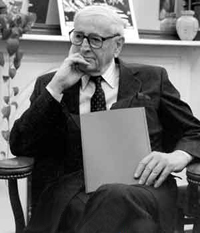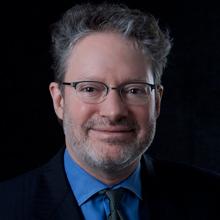Origins: Gardner and Freedman

John Gardner
Experience Corps was the brainchild of several parents. John Gardner coined the name in 1988. Gardner, who held the post of secretary of Health, Education and Welfare (HEW) under President Lyndon Johnson, traveled the country in the 1960s visiting senior centers funded by HEW. (In 1979, HEW split into two entities, the Department of Education and the Department of Health and Human Services.) In his travels, Gardner observed that health and financial problems were not the only afflictions facing the elderly. As he later explained in an interview, There was loneliness, boredom, a need to be neededsomething to get up for in the morning. [1]
Gardner drew on his observations in a concept paper, drafted in 1988, in which he proposed creating The Experience Corps to revitalize civil society by finding ways for older Americans to serve their communities. He stressed that their roles should be meaningful and substantive, drawing on retirees ingenuity and capacity to lead and manage their own service program. Seniors would not only give back to society, but also have a great adventure and an opportunity to grow and learn. We believe, without being immodest, Gardner wrote in the draft paper, that the large numbers of us over age 65 constitute a rich reservoir of talent, experience and commitment potentially available to the society. [2]

Encore.org
Marc Freedman
The concept took a step toward becoming reality when Gardner met Marc Freedman at a conference in 1992. Freedman, founder of Civic Ventures (later renamed Encore.org), a non-profit that developed and piloted models for delivering social services, had been studying the role that older people might play in improving lives of the young, particularly through one-on-one mentoring. At the conference, Gardner, the keynote speaker, implored the audience to seek innovative ways to address societys illsbroken families and splintered communitiesrather than become mired in nostalgia for the past. Stop lamenting the loss of old patterns, and ask what steps must be taken toward new patterns, Gardner urged the audience. [3] After the speech, Freedman approached Gardner to share his own ideas. Gardner pulled from his briefcase his treatise on Experience Corps. It closely resembled Freedmans own thinking.
Freedman began to research how the concept could work on the ground. He visited Foster Grandparent programs around the country in which, among other activities, adults over age 55 went into schools and worked with children with special needs. Foster Grandparents was run by the Corporation for National and Community Service (CNCS), a federal agency that also administered AmeriCorps and other service-oriented programs. Freedman spoke to Foster Grandparents directors and found some had developed their own ways of doing things that fell outside the established program guidelines. At one school in Maine, for example, 10 volunteers worked together, forming a critical mass that made a significant impact on the school while offering the volunteers a strong support network that reinforced their commitment to, and benefit from, the work. (Typically, Foster Grandparents were dispersed thinly across many schools in an effort to share the wealth.)
This gave Freedman what would become one of the tenets of the Experience Corps model: critical mass. Members would be deployed in sufficient concentration to be a presence wherever they were serving. Teams of volunteers would provide mutual support and friendship. In addition, Experience Corps would be open to everyone over age 50, not just low-income individuals (as was Foster Grandparents). It would also seek to recruit older men (only five percent of Foster Grandparents were men). [4] Freedman set out his plan in a 1994 study for the Commonwealth Fund. [5] He sums up his intentions at the time:
From my perspective, what Experience Corps was really, at least the initial idea, was to take the best reforms that Foster Grandparents program directors were suggestingand to combine them in a new program model that included a much more contemporary name: John Gardners great Experience Corps moniker. [6]
Freedman on Foster Grandparents and Experience Corps.
[1] Marc Freedman and Linda Fried, Launching Experience Corps: Findings from a Two-Year Pilot Project Mobilizing Older Americans to Help Inner-City Elementary Schools (Oakland: Civic Ventures, 1999), p.10.
[2] John W. Gardner, The Experience Corps, concept paper, 1988. See Appendix 1.
[3] John W. Gardner, Reinventing Community, speech to the Carnegie Council on Adolescent Development, December 11, 1992.
[4] Marc Freedman, Prime Time: How Baby Boomers will Revolutionize Retirement and Transform America (New York: PublicAffairs, 1999), 183-184.
[5] Marc Freedman, Seniors in National and Community Service (New York: The Commonwealth Fund, 1994).
[6] Authors telephone interview with Marc Freedman, on October 31, 2013. All further quotes from Freedman, unless otherwise attributed, are from this interview.